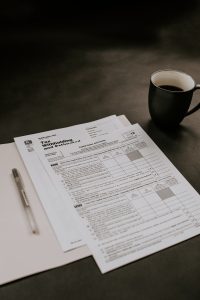Forex trading is a popular investment option for many people, but it can be complicated when it comes to reporting your profits and losses to the IRS. In this article, we will explain how to report your Forex trading activity to the IRS.
Forex Trading and Taxes
Forex trading is a type of investment that involves buying and selling different currencies in order to make a profit. As with any investment, profits made from Forex trading are subject to taxation by the IRS. However, the tax rules for Forex trading are different from those for other types of investments.
Forex Trading Income
The first thing to understand when it comes to reporting Forex trading activity to the IRS is the type of income it generates. Forex trading income is considered ordinary income, which means it is taxed at the same rate as your regular income. This is different from capital gains, which are taxed at a lower rate.
If you’re a trader, then you’re eligible to make certain tax deductions related to your trading activity. You can claim deductions for expenses such as your trading platform, data fees, and Internet connection charges. You can also deduct losses from your Forex trading activity from your taxable income.
Reporting Forex Trading Income
The IRS requires you to report all your Forex trading activity on your tax return. This includes any profits you make from your trades, as well as any losses you incur. You’ll need to report your Forex trading activity on Form 1040, Schedule D, which is used to report capital gains and losses.
If you’re a trader, then you’ll need to file a Form 1040, Schedule C, which is used to report business income and expenses. You’ll also need to file a Form 8949, which is used to report your capital gains and losses. You’ll need to include all your Forex trading activity on these forms, including your profits and losses.
If you’re a Forex trader, then you’ll need to keep detailed records of all your Forex trading activity. This includes the date of each trade, the currency pair you traded, the amount you bought or sold, the price at which you bought or sold, and any fees or commissions you paid. You’ll also need to keep track of your profits and losses for each trade.
Reporting Forex Trading Taxes
When it comes to paying taxes on your Forex trading activity, you’ll need to pay both federal and state taxes. Federal taxes are paid to the IRS, while state taxes are paid to your state’s tax authority.
The IRS requires you to pay taxes on your Forex trading income on a quarterly basis. This means you’ll need to estimate your income for the quarter and pay taxes on that amount. If you’re a trader, then you can also make estimated tax payments based on your expected income for the year.
If you’re a Forex trader, then you might also be eligible for certain tax credits and deductions. For example, you can claim a deduction for your home office if you use a portion of your home as your trading office. You can also claim a deduction for your trading platform and other expenses related to your trading activity.
Conclusion
Reporting Forex trading activity to the IRS can be complicated, but it’s important to do it correctly to avoid any issues with the IRS. Make sure to keep detailed records of all your trades and expenses, and report all your Forex trading activity on your tax return. If you’re unsure about how to report your Forex trading activity to the IRS, then it’s a good idea to consult a tax professional.





